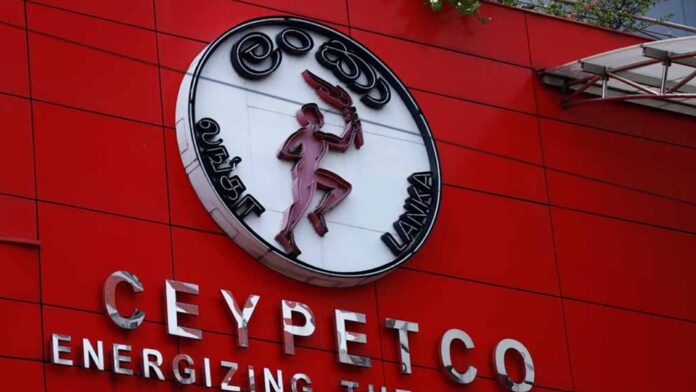By: Staff Writer
February 09, Colombo (LNW): The State-run Ceylon Petroleum Corporation (CPC) has assumed control of 64 fuel stations that were previously managed by Australia-based United Petroleum (UP). This transition follows UP’s decision to cease its Sri Lankan operations in December 2024, despite entering the market in August of the same year.
United Petroleum had initially signed agreements on June 8, 2023, as part of the previous government’s strategy to attract international fuel retailers to the country. However, it took over a year for UP to commence operations. The fuel stations had been granted to UP under a 20-year contract, but with the company’s withdrawal, they are being handed back to CPC.
CPC Managing Director Mayura Neththikumarage confirmed that UP’s dealer network is being transferred to CPC, although no formal announcement has been made regarding UP’s departure. Reports from local media have highlighted operational challenges, with a United Petroleum dealer recently complaining about a malfunctioning fuel pump that was not repaired despite repeated requests. The dealer expressed a preference for returning to CPC management.
In response to the country’s foreign exchange crisis, the former administration allowed international companies such as China’s Sinopec, RM Parks (in collaboration with Shell), and UP to take over 450 fuel stations previously run by CPC. However, UP struggled to secure the 150 private dealerships allocated to it before the government changed. Sinopec was the first to formalize an agreement in May 2023, followed by RM Parks in June, with both focusing on fuel importation, storage, distribution, and sales.
UP had initially committed to a $27.5 million investment under its agreement and was granted operations at 150 existing fuel stations, with rights to construct 50 additional outlets. CPC Chairman D.J.A.S. De S. Rajakaruna confirmed that CPC took over the 64 fuel stations managed by UP to ensure an uninterrupted fuel supply. However, the legal ownership transition remains unresolved, with discussions still ongoing. He clarified that while all 150 stations were allocated to UP, only 64 transferred operations, as the remaining private owners opted to stay with CPC.
The Ministry of Energy is currently handling legal matters related to the takeover. When asked if another international retailer would replace UP, Rajakaruna dismissed the necessity, stating that Sri Lanka’s fuel market is small and stable. He noted that foreign firms were brought in to mitigate fuel shortages caused by the foreign exchange crisis, which has now been resolved.
A senior UP official, speaking anonymously, cited tension with the government, policy changes, and the preference for a state-controlled fuel distribution model as primary reasons for UP’s exit. The company claimed that bureaucratic delays hindered the signing of dealership agreements, making its operations unsustainable. Additionally, UP alleged that a fuel shipment intended for Sri Lanka was forced to return due to logistical challenges, further straining its supply chain.
UP officially ceased operations on December 19, 2024, and CPC assumed deliveries. However, former UP dealers have raised concerns over the lack of financial benefits, such as credit facilities, that CPC provides its own dealers. Reports indicate that the government is negotiating to prevent UP from pursuing legal action at the Singapore International Arbitration Centre (SIAC). Allegations also suggest that the government submitted a Cabinet paper to override a clause in UP’s agreement that restricted profit repatriation for the first 12 months, allowing the company to exit quietly.
At the time of withdrawal, UP still had three million liters of fuel in storage, which it claims the government is attempting to integrate into CPC’s supply. On January 8, UP issued termination notices to employees, with their last working day being January 7. UP CEO Nigel Simonsz cited “unforeseen circumstances beyond the company’s control” as the reason for layoffs in an official letter to employees.
Former UP employees have since filed complaints with the Ministry of Energy, arguing that the company violated Sri Lankan labor laws by failing to provide severance packages. Their letter demands urgent government intervention, accusing UP of “taking its profits and running away to Australia.”
The situation continues to unfold as CPC works to stabilize fuel distribution while the Ministry of Energy engages in discussions regarding UP’s departure and its legal implications.

